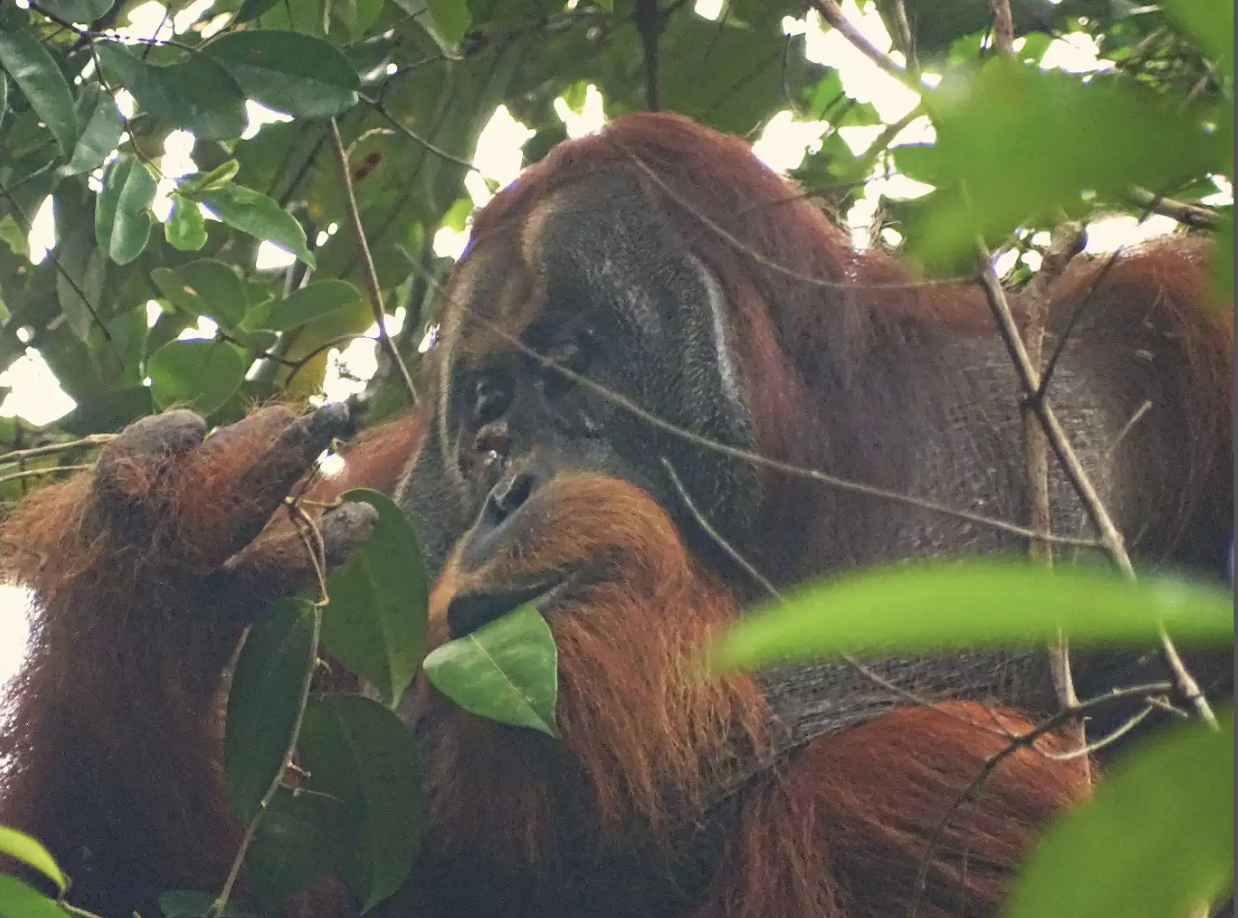Orangutan is first wild animal seen treating injury with medicinal plant, scientists say

A wild orangutan was seen rubbing the mash of a medicinal plant in his wound, scientists reported Thursday.
Why it matters: It's believed to be the first documented case of the behavior in a wild animal and could point to the origins of wound care in humans, the researchers wrote.

What they found: Akar kuning (Fibraurea tinctoria) is a medicinal plant with anti-inflammatory, antibacterial and other properties used by people in Sumatra and elsewhere to treat wounds.
- But one day in June 2022, scientists in Gunung Leuser National Park in Indonesia spotted a wild male Sumatran orangutan (Pongo abelii), who they call Rakus, treating himself with the plant in a similar way.
- Rakus chewed the plant — which orangutans don't normally eat — and put the juice it produced on a wound on his face, they report in the journal Scientific Reports. He then covered the wound with the chewed-up plant. The process took more than 30 minutes, the team said.
- Within five days, the wound closed, and it healed within a month.
- Rakus was also seen resting more than usual, which could help with wound healing, the researchers from Max Planck Institute of Animal Behavior in Germany and Universitas Nasional, Jakarta, wrote.
Yes but: "It's a single observation," Emory University biologist Jacobus de Roode, who was not involved in the study, told AP. "But often we learn about new behaviors by starting with a single observation."
- "Very likely it's self-medication," said de Roode, noting that the orangutan applied the plant specifically to the wound.
The intrigue: Other forms of self-medication have been reported in primates but it is rare, the New York Times' Douglas Main notes.
- Combined with the observations of Rakus, the team suggests "our last common ancestor may have already showed similar forms of ointment behavior."
Go deeper: Older chimpanzees, like humans, favor a few close friends